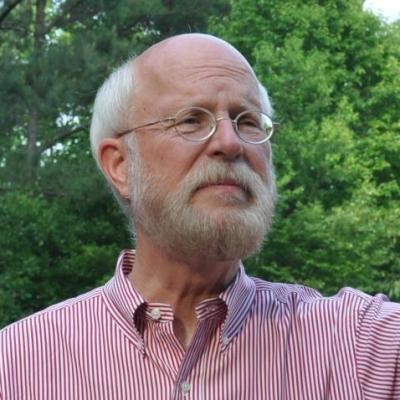Tuesday 1st Oct 2019 @ 7:30 pm
UNSW

Speaker: Dr Henry Fritz Schaefer, SB (MIT), PhD (Stanford University).
Cost: No charge, but seating is limited. For catering and seating purposes, it would be appreciated if you could please register.
Registration: Please email (Em. Prof.) Peter Barry p.barry@unsw.edu.au (or contact him by mobile on 0419 243 685) giving him your name, email address and mobile number. For any other information, also contact Peter Barry by email or mobile.
“The Big Bang, Stephen Hawking, and God”
The book A Brief History of Time by Stephen Hawking has sold more than 20 million copies, an unheard of result for any book about science. Thus Stephen Hawking became a media figure, as well as a great scientist. Indeed, Hawking’s divorces were the source of as much intrigue as those of some Hollywood stars. A Brief History of Time centres around two main characters, Professor Hawking and God. The latter is almost always referred to in terms borrowed from a Christian worldview. What does it all mean, especially in the light of Hawking’s declaration, near the very end of his life, that he was an atheist? This lecture has very significant implications for creation, science and Christian faith.
Biosketch: Dr Henry “Fritz” Schaefer III
Degrees: SB (Chemical Physics) Massachusetts Institute of Technology (MIT) June 1966; PhD (Chemical Physics) (Stanford University) April 1969.
Since 1987, Dr Schaefer has been the Graham Perdue Professor of Chemistry and Director of the Center for Computational Quantum Chemistry at the University of Georgia. From 1969 to1987, Schaefer was a Professor of Chemistry at the University of California, Berkeley, where he and Charles Bender discovered, contrary to previous experimental conclusions, “the bent structure of triplet methylene”. His scientific recognition includes six awards from the American Chemical Society, namely Pure Chemistry, Leo Hendrik Baekeland, Ira Remsen, Theoretical Chemistry, the Peter Debye Award in Physical Chemistry, and the Charles H. Stone Award. He was also the 1992 recipient of the Centenary Medal and Lectureship of the Royal Society of Chemistry (London), an international award given to an outstanding chemist not resident in Great Britain. His latest recognition (May 2019) is the American Institute of Chemists Gold Medal, an award given to many Nobel Prize recipients. With his group of 121 successful PhD students (16 in progress) and many postdoctoral fellows, Schaefer is the author of 1600 scientific publications, garnering more than 70,000 citations and an H-Index of 120. He has visited Australia more than 20 times and gave the David P. Craig Lectures at the Australian National University in 1999 and the New College Lectures at the University of New South Wales in 2004. His research develops new theoretical and computational methods and uses these to solve important problems in chemistry.
Further information:
Here is a Dropbox link to a UNSW map showing the location of Old Main Building, the G31 Lecture theatre, the Barker St Parking Station and the Western Campus Carpark. Parking: There should be free parking available after 6.30 pm in the Barker St. Parking Station (N18), as indicated on the bottom right (S.E.) corner of the above linked map. N.B. at no time should cars be parked in marked reserved places. There is also free parking after 6.30 pm in the Western Campus Carpark (G2) between the New College Village (H3) and NIDA (E2), which is normally accessed via Day Ave (see above linked map). In addition, there can be parking available on nearby suburban streets.
This event is organised by the ISCAST Sydney/NSW chapter.